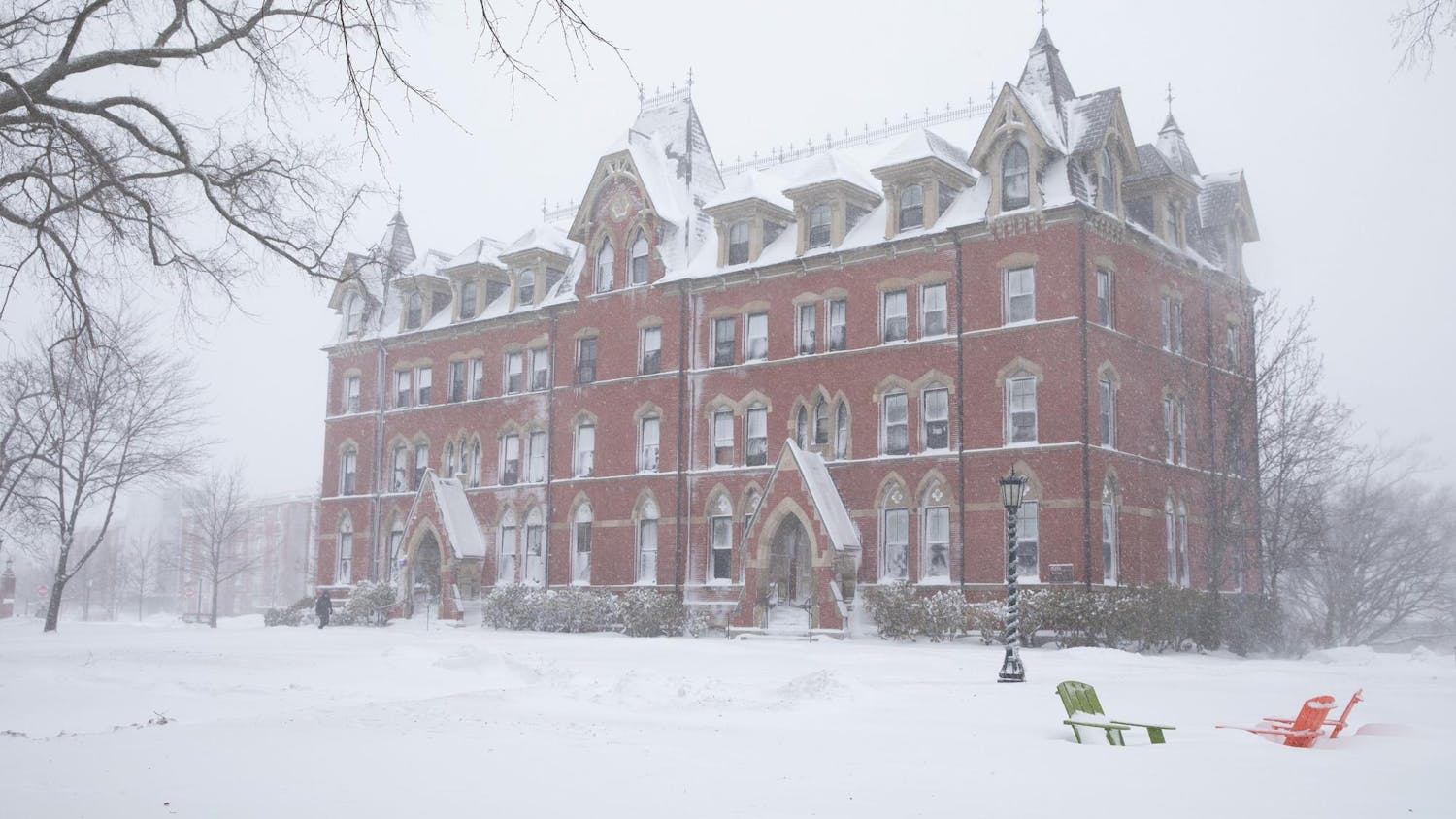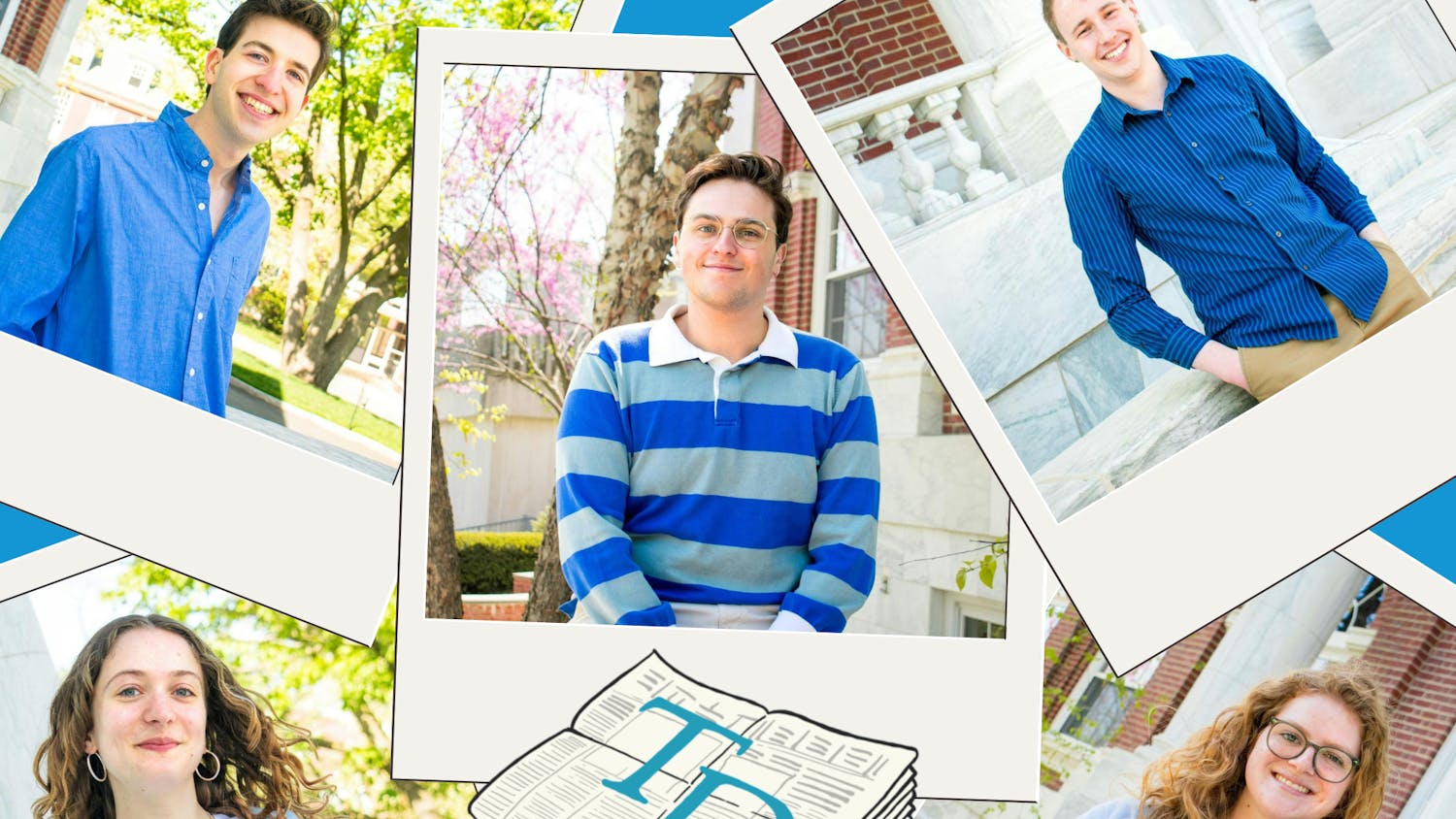Over 450 textbooks were sold at the first Tufts Community Union (TCU) Senate Textbook Exchange — over 50 percent of the textbooks TCU Senate had received, according to TCU Senate Education Committee Chair Philip Miller. He added that Tufts students spent approximately $12,000 at the exchange and saved an estimated $30,000 through the program.
The textbook exchange was open in the Mayer Campus Center from Sept. 4–12, according to the event's Facebook page.
Miller, a sophomore, said he originally proposed the idea of a textbook exchange with the aim of providing students with an alternative platform for purchasing textbooks.
“It was like a madhouse,” he said. “Everyone wanted to get the best prices, obviously, because we listed the prices that each seller wanted [which were lower than usual]. The room was so packed, you couldn’t move.”
Miller said he worked on the initiative during his entire first year on Senate in collaboration with others interested in the exchange.
“Administrators, staff, faculty, students, everyone was so supportive and involved in the process,” he said. “I thought that understanding the problem was the main thing, so I met up with everyone trying to deal with the same issue."
Miller noted that he met with Head of Scholarly Communications and Collections at Tisch Library Martha Kelehan, who ultimately assisted with the exchange by providing boxes to store the textbooks.
Kelehan said she has long wanted to increase the accessibility of textbooks for students.
“This is a complex arena — there isn’t going to be one solution to this problem, because students have a lot of needs," she said. "We definitely think it’s going to take a lot of different efforts on a lot of different fronts to figure out how to make textbooks more accessible for students, but we’re up for talking about and hearing suggestions from all corners."
Dorothy Meaney, the interim director of Tisch Library, said the library and TCU Senate can work together to make sure students can access their textbooks.
“We want information about what the students need the most, so we can decide if we should buy something new or stop doing anything,” she said.
However, the textbook exchange did run into roadblocks with other campus partners. According to Miller, there was some confusion as to whether the textbook exchange violated a contract Barnes & Noble had with the university to be the exclusive bookseller at Tufts. In the end, no legal action was taken, according to both Miller and Executive Director of Public Relations Patrick Collins.
Collins explained that the company wanted to learn more about the program and made no mention of pursuing legal action during conversations with the university.
"Barnes & Noble contacted the university to inquire about and better understand the textbook exchange program. The ensuing discussions were cordial and reviewed the program's purpose and design. There never was discussion of a lawsuit," Collins said.
Boon Teo, the store manager of the Tufts University Bookstore, said the bookstore was not involved in the initiative, but had taken to collaborating with the Office for Campus Life on a program called Book it Forward instead. He said that the books could be checked out by students who needed the service, and returned at the end of the year.
Miller said TCU Senate is working on ways to improve the exchange, including starting up User Interbase, a search engine which allows volunteers to access information about exchange books.
“We have so many ideas, but we have to choose what’s more realistic,” he said. “There’s a lot of analyzing data I want to do, and changes I want to make in the User Interbase. We’re also hoping to get an even larger room, with more people working there.”
Miller also said in the future he hopes to be able to pay the people working at the textbook exchange, who currently do their jobs on a volunteer basis.
“I’m trying to get more funding for the volunteers selling the textbooks," he said. "There’s a lot of setups, moving the textbooks around, keeping the cash, the whole publicity thing and it’s all volunteer. Nobody’s getting paid or anything, but that’s what I want to change.”
TCU Textbook Exchange saves students estimated $30,000 overall

9/18/17 – Medford/Somerville, MA - A student working at the Tufts Bookstore shelves books a couple of weeks after the Tufts Book Exchange. The Exchange is aimed to provide an easier alternative for students struggling with textbook prices.





